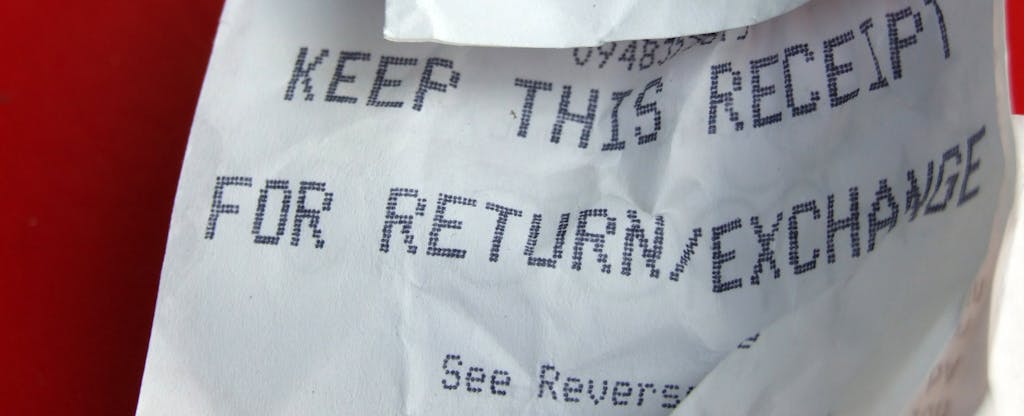Some popular retailers are tracking and monitoring customer sales data through a third-party service. Their goal? To identify problematic shoppers they suspect of fraud or return abuse.
As the Wall Street Journal reports, major retailers, such as Best Buy, The Home Depot and Victoria’s Secret, have hired a third-party service, The Retail Equation, to mine their return data and flag certain customers.
The Retail Equation wouldn’t reveal the full list of stores it works with to the Wall Street Journal, but Business Insider compiled a list that features such big-name retailers as CVS Pharmacy, Sephora, Dick’s Sporting Goods and JCPenney, as well as the three mentioned above.
Consumers may be unhappy to learn that their returns are being tracked and their overall return behavior scored for risk, but The Retail Equation frames its service as a necessary measure to combat return fraud and abuse. The service’s website describes fraudulent and abusive returns in the U.S. as a “$9–17 billion per year problem for retailers.”
Still, that hasn’t stopped consumers from voicing their displeasure across social media and other outlets. Some have claimed they’ve been unfairly targeted and punished, even though they weren’t doing anything wrong.
What does this mean for you?
If you’ve shopped at one of the 34,000 stores that could be using The Retail Equation, your data may be in the service’s database, which means you may have a risk score.
The Retail Equation collects shopping information from individual retailers (though it denies sharing personal consumer data between retailers).
The service may then “review the returns, look for suspicious situations, and issue approvals, warnings or denials,” claims Tom Rittman, a marketing VP at Appriss Inc., the firm that acquired The Retail Equation in 2015.
So how do you know if you’re at risk of being scored and identified as a “suspicious” shopper?
Unfortunately, there seems to be little or no indication that you’re on the verge of being identified as a problematic shopper. The specific actions that flag you as suspicious — and the retailer’s resulting measures — vary by retailer and might not be disclosed in their return policies.
Why should you care?
When you make a return at certain stores, details about your identity and shopping visit may be transmitted to The Retail Equation. Best Buy, for example, uses The Retail Equation to assess all returns, even those made with a receipt.
If your risk score, which can be negatively impacted by factors such as making too many returns in a short period of time, surpasses a certain threshold, your next return may be refused. The store’s standard return policy may not apply for you — not necessarily because your returns have been fraudulent or abusive, but simply because your “return history is often associated with such behavior” says The Retail Equation’s website.
What can you do?
We’ve all been there — buying something, and then getting home and figuring out you don’t really need it or it’s not going to work for you.
Not a problem, because you can just return it, right? Well, that may not be the case if your purchase is with a retailer that’s cracking down on shoppers they suspect of making fraudulent returns or abusing their return policy.
Rather than feel powerless, here are some actions you can take today.
- Request your report. Consumers can go to The Retail Equation’s website and request a copy of their return activity report. However, the report doesn’t list your actual score or other specifics about your standing with retailers.
- Check the return policy first. While this isn’t always the case, some retailers may include information about tracking in their return policy. It doesn’t hurt to reach out to customer service for clarification.
- Look into your credit card’s return protection. Some credit card companies, such as American Express, offer return protection that could protect you from unfair or strict merchant policies. In the case of American Express, if you try to return an eligible item within 90 days from the date of purchase and the merchant won’t take it back, American Express may refund the full purchase price (excluding shipping and handling) up to $300 per item (up to a maximum of $1,000 per calendar year, per card account). Other credit card companies may offer similar protections. Always check your card’s terms and conditions before making a purchase you may regret.


